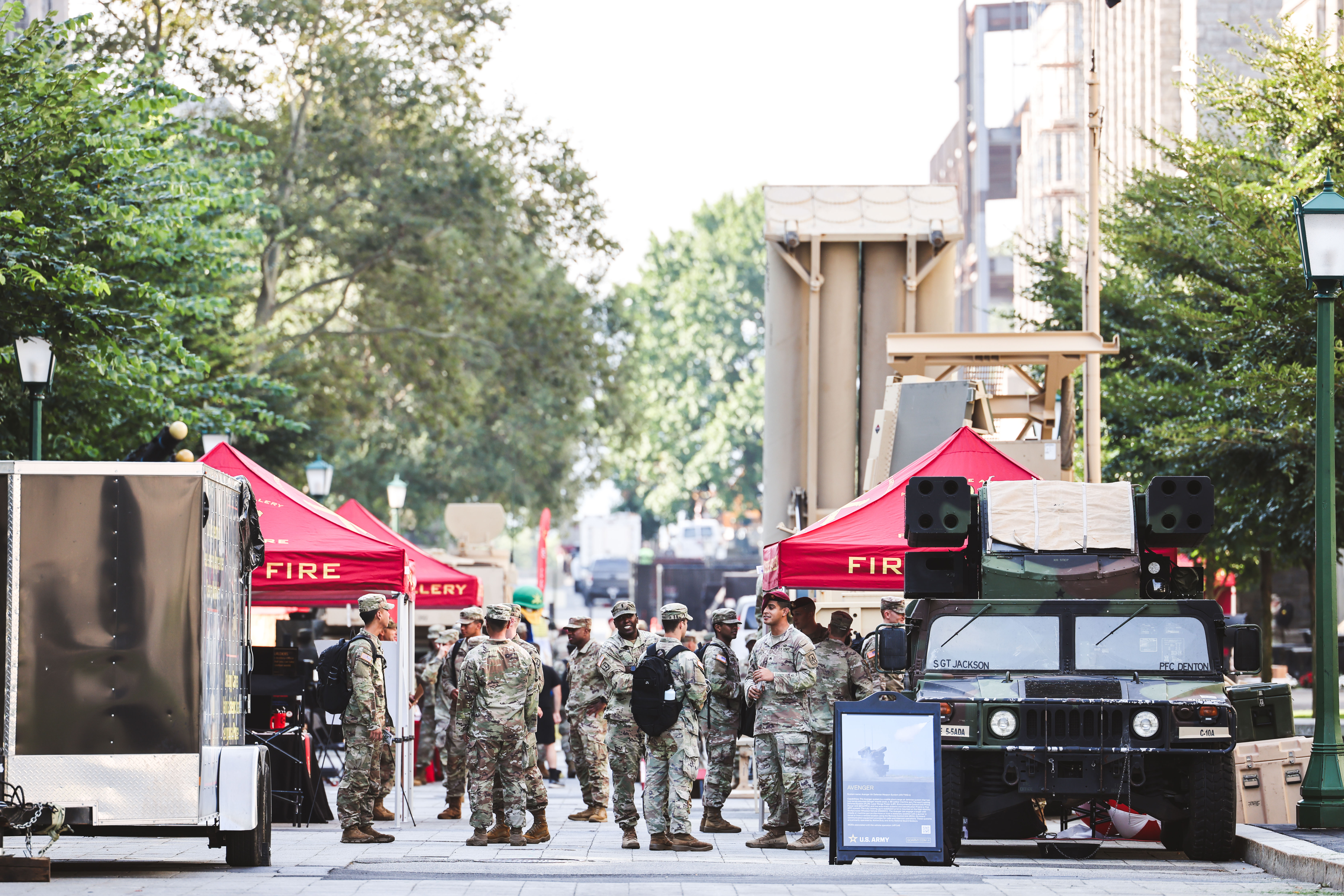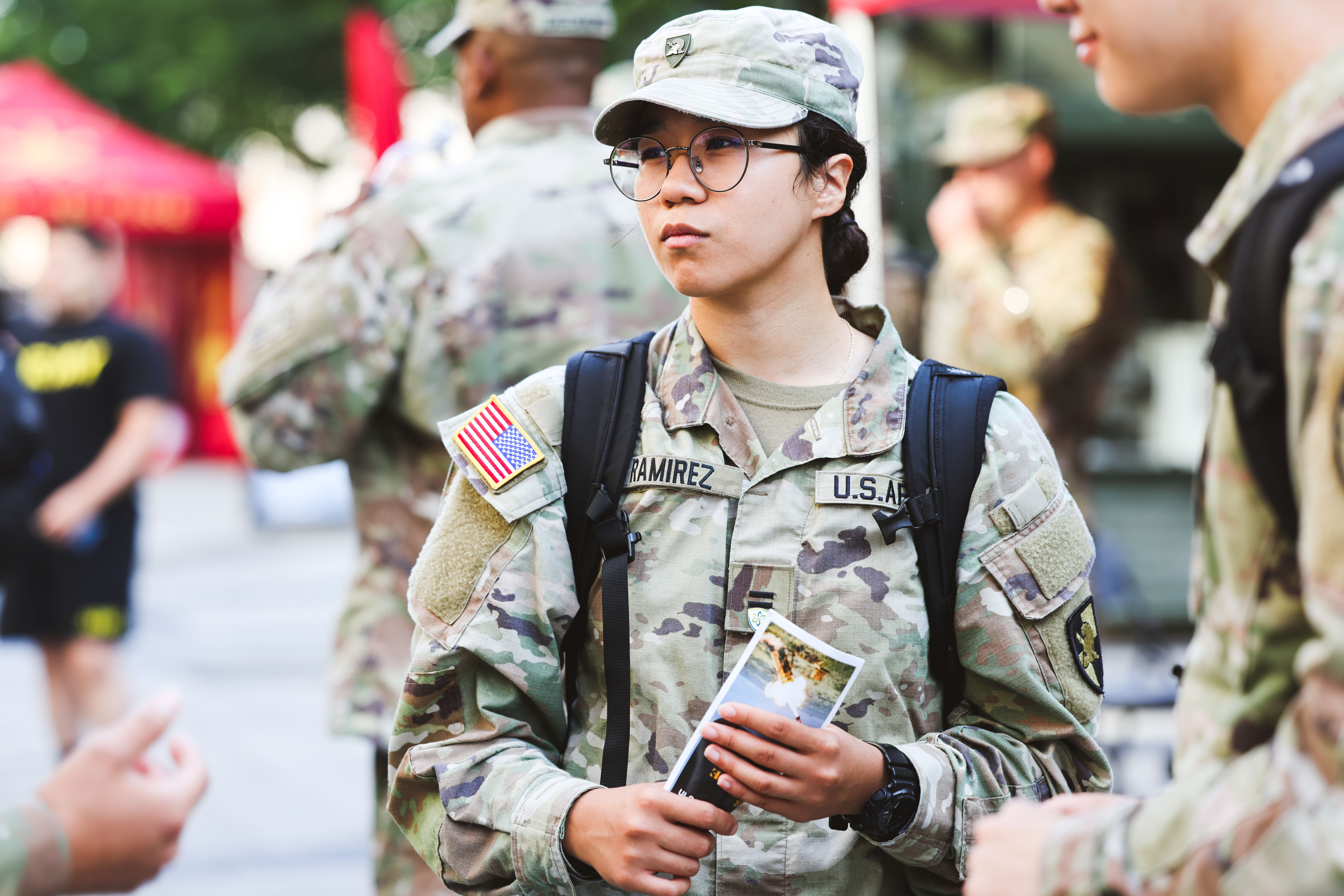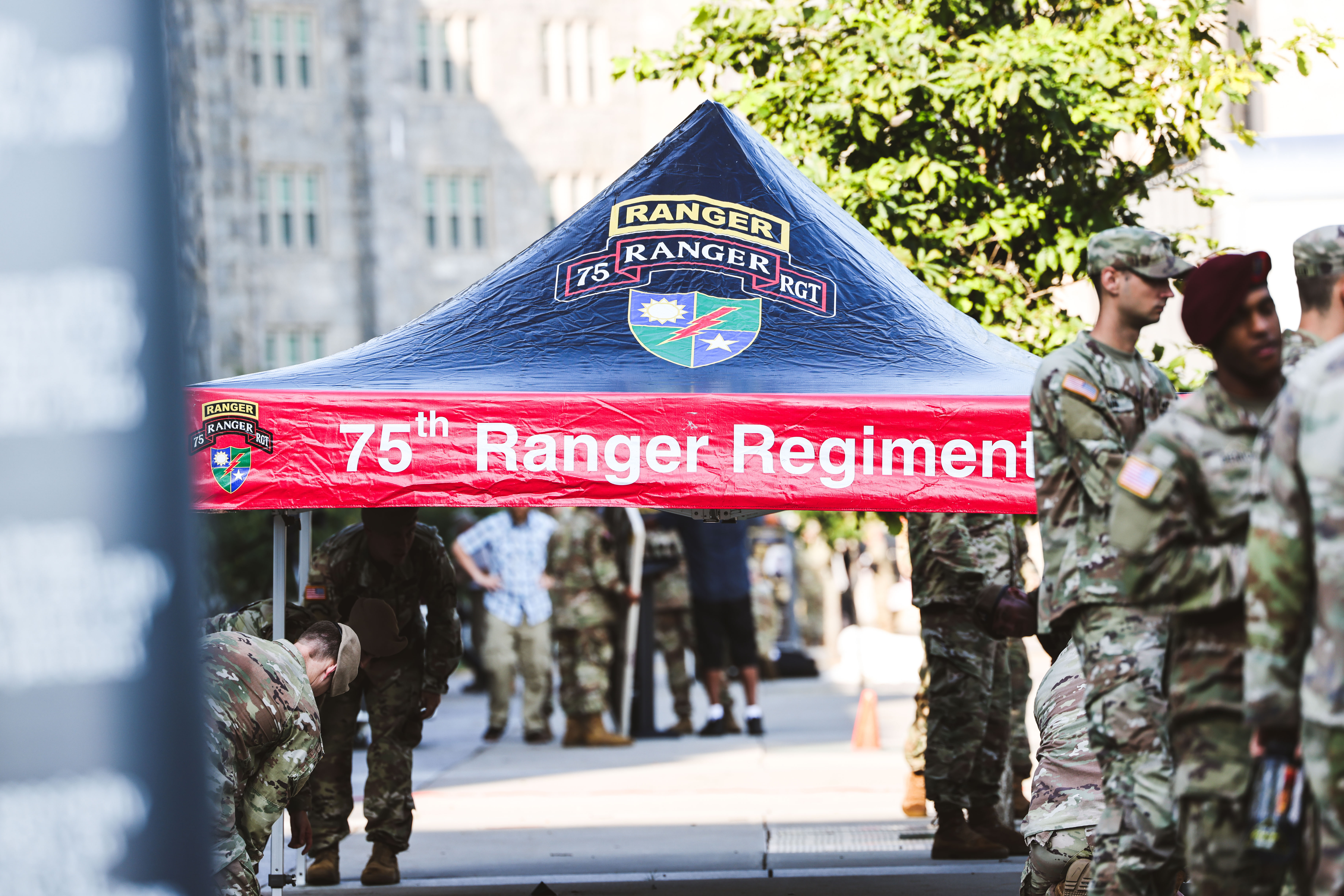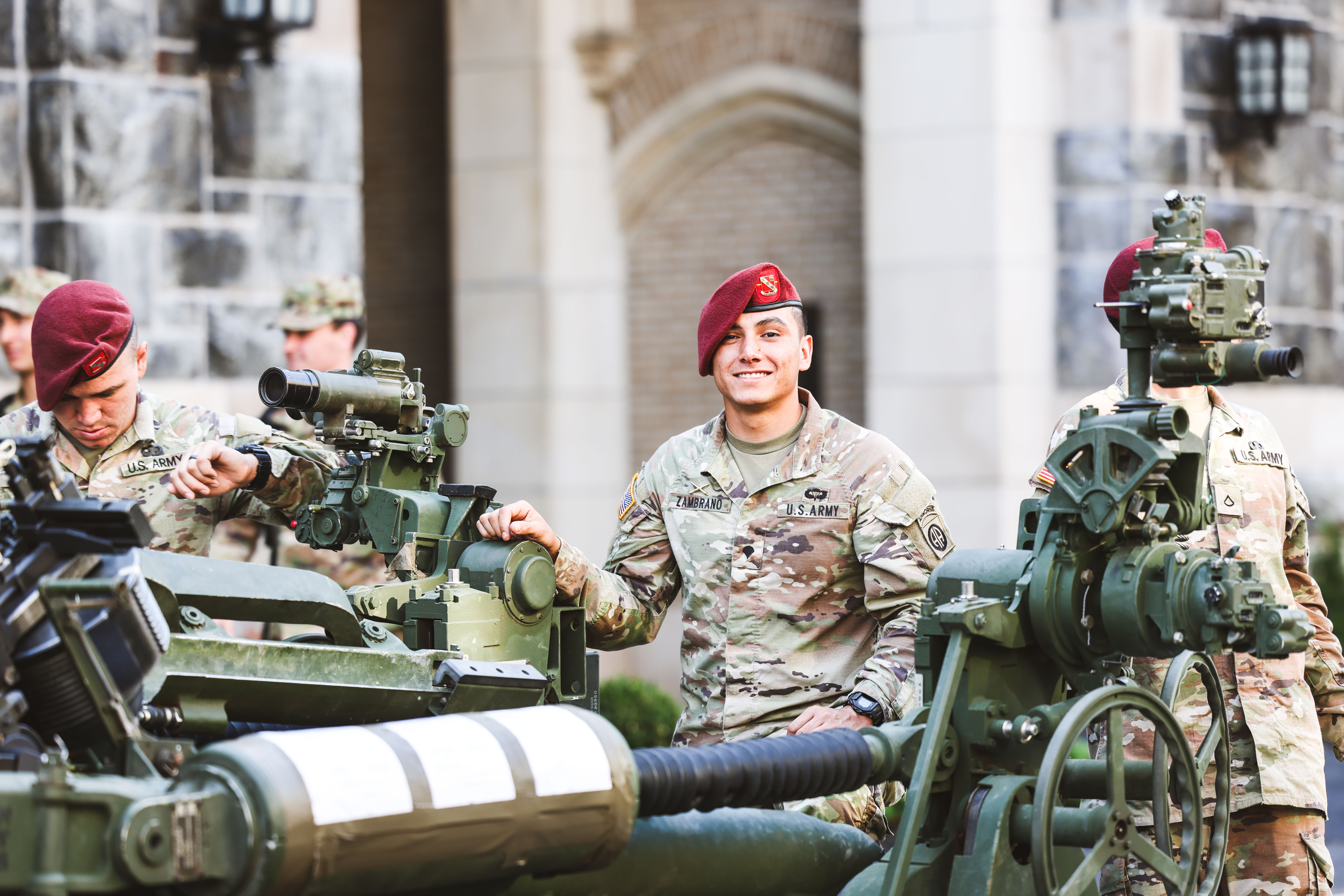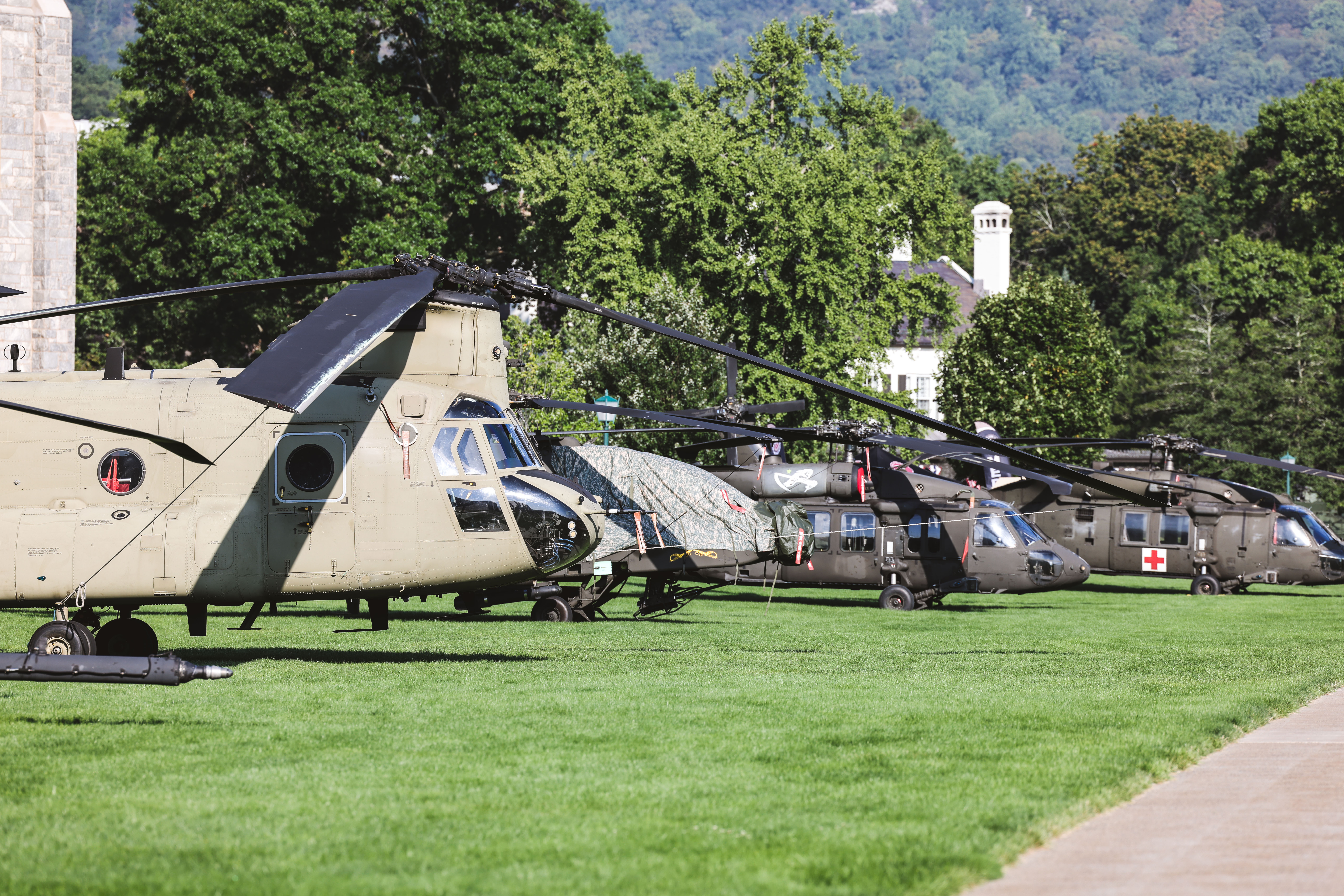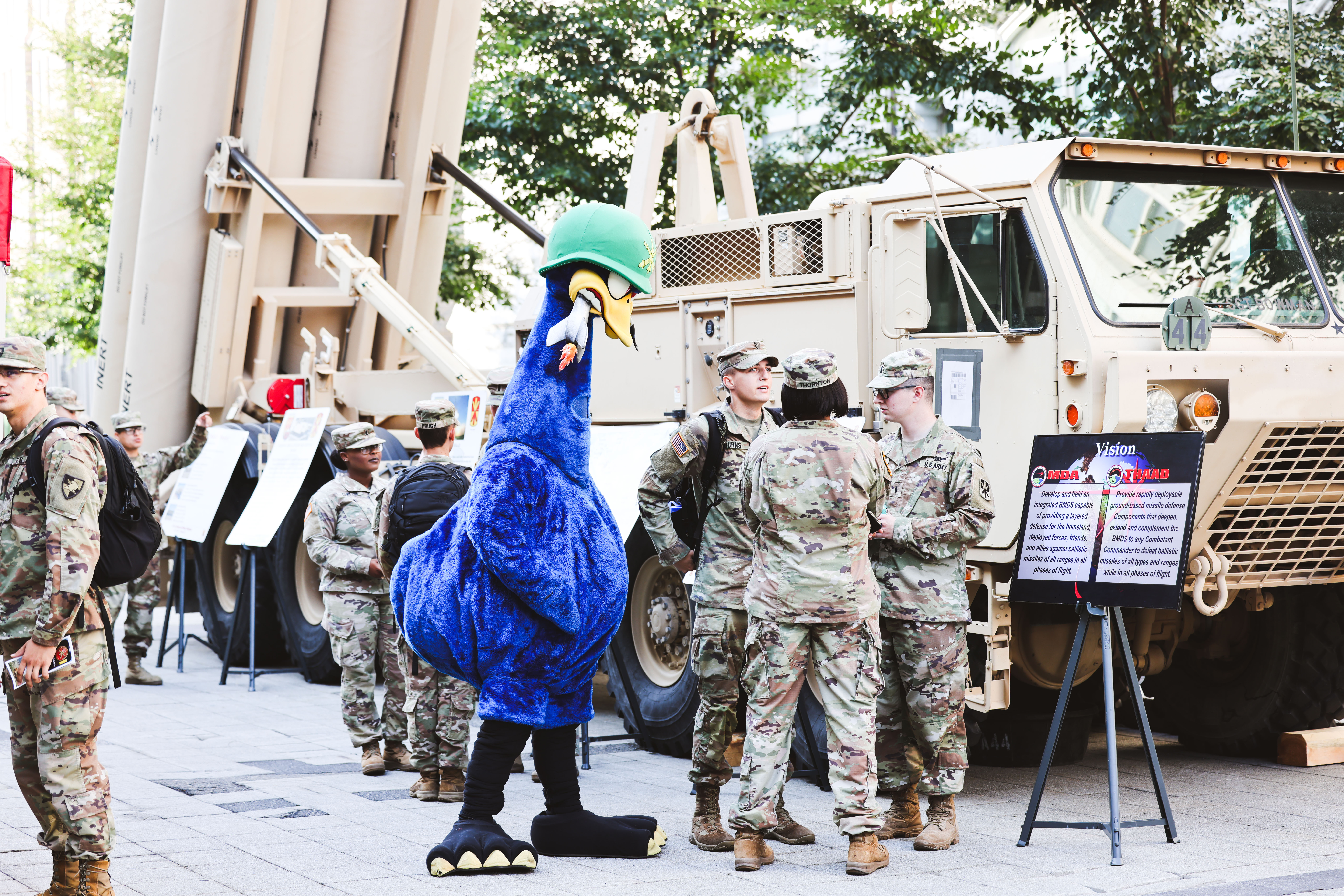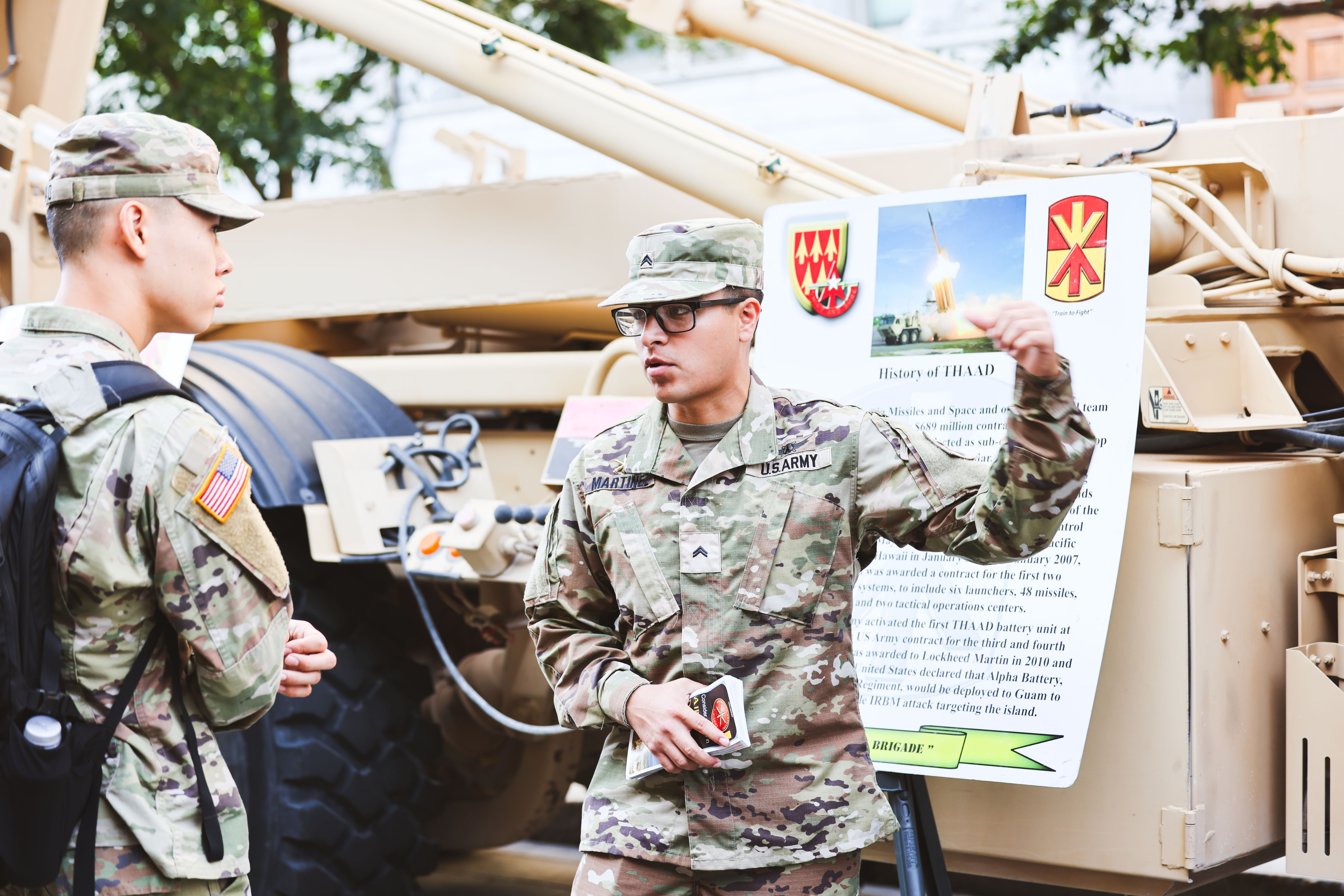West Point was alive with excitement and camaraderie as cadets explored which Army branches resonated with them most during Branch Week from Sept. 5-9 at the U.S. Military Academy.
This weeklong annual event brings firstie cadets one step closer to their military careers. It also highlights the academy's rich tradition of exploring the rich tapestry of branches in the U.S. Army while marking a significant juncture for its graduating cadets.
Branch Week at West Point is a pivotal moment for cadets as they receive their branch assignments, within the next three months determining the military career path they will embark upon after graduation. The week was an opportunity for all cadets to learn more about the unique aspects of each branch and make informed decisions about their future service.
Throughout the week, cadets engaged in a series of activities, briefings, and demonstrations organized by each branch of the U.S. Army, including Infantry, Armor, Engineers, Signal Corps, Aviation, and many others. These activities provide cadets with an in-depth understanding of the roles and responsibilities associated with their assigned branches.
Branch Week representatives from each branch exhibited interactive displays and engaged with cadets in conversations about career options.
This event fosters meaningful connections between cadets and branch representatives, allowing them to ask questions, seek advice, and gain insights into life within a particular branch.
For the Class of 2024, this Branch Week represents not just a step forward but a giant leap toward fulfilling their dreams of serving the nation. As the week unfolds, cadets form bonds with fellow cadets and gain invaluable insights that will shape their future military careers.
Cadet Sarah Mancari, the brigade adjutant for the Class of 2024, has dedicated significant effort to secure a future spot within the U.S. Army Corps of Engineers, driven by a great appreciation for what the branch has to offer.
"You know, I have a real love for the field of engineering. It's one of those branches that just opens up a world of possibilities," Mancari said. "It enables all forces within the Army and lends its support to so many different functions across the entire Armed Forces. I'm genuinely excited about the prospect of contributing to the Army's mission by being part of this branch."
Cadet John Gabbert, from the Class of 2027, also found himself strongly captivated by the Army engineers branch, as he felt that the presentation of the static displays, combined with the branch's culture, greatly ignited his interest.
"There's so many different specialties you can go into through the engineer branch," Gabbert said. "You can try combat, which is what I want to get into with Sapper school, and I also see other great opportunities and skills that I can learn that are applicable to jobs outside the military. I can possibly take everything I learned about character and leadership and apply it in the civilian world."
Serving as the Class of 2024 Brigade Signal Operations officer, Cadet Sade Moore aspires to fulfill her dream of taking to the skies alongside her crew within the U.S. Army Aviation branch.
"Aviation is such a dynamic branch, " Moore said. "It's all about teamwork. You're in charge of a crew and everyone is equally crucial to the success of the mission."
Capt. Kristen Bruce, an Army space operations officer from the U.S. Army John F. Kennedy Special Warfare Center, served as the Army space branch's representative, sharing insights with cadets about the qualities sought in prospective officers interested in joining the branch.
She also explained what her typical day-to-day tasks are as an Army space officer.
"In essence, the mission of the Army Space branch is to harness the potential of various national assets orbiting our planet. These assets, which encompass a wide range of capabilities, are brought into play in a strategically significant manner for operational commanders," Bruce said. "In my role as a space operations officer, my primary responsibility is to analyze the array of space capabilities at our disposal.
"I then align them with my commander's mission and objectives. My task is to find ways to integrate these space capabilities seamlessly into every facet of the mission, ensuring that each warfighting function under my commander's purview is well-informed and empowered," she added. "This collaborative approach ensures our collective success."
With the conclusion of Branch Week, these cadets became one step closer to fulfilling their mission of defending the nation and upholding its principles as they made informed decisions that aligned with their passions and talents, which will ultimately shape the next generation of military leaders.
For prospective cadets who will one day experience Branch Week but remain uncertain about which branch to select, Gabbert advises, "Make sure that the branch you choose aligns with your personality because I believe your personality forms the foundation of your preferences."
Moore also shared some valuable advice, emphasizing the significance of beginning the process early when it comes to cadets choosing the right branch.
"Exploring your branch options is something you can do at any stage. I can recall my early days at prep school when combat roles weren't even on my radar," Moore concluded. "The key is to approach this decision with an open mind, invest time in thorough research, and gain a deep understanding of what you're venturing into. By doing so, you'll make an informed choice that aligns perfectly with your aspirations and the path you want to carve in the military."
